Books on consciousness
A list of books relating to the hard problem of consciousness. Regularly updated cos I keep finding new stuff all the time.
A list of books relating to the hard problem of consciousness. Regularly updated cos I keep finding new stuff all the time.
2018
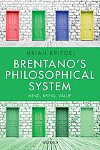 Uriah Kriegel
Uriah Kriegel
Brentano’s Philosophical System: Mind, Being, Value
(Oxford 2018)
A rich exploration of the philosophy of a great nineteenth-century thinker, centering around the connection between mind and reality. Kriegel develops Brentano’s ideas where they are overly programmatic or superseded by developments since his death a century ago; and offers a partial defense of Brentano’s system as plausible, creative and thought-provoking. See Oxford | Amazon | Google
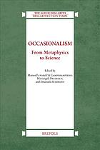 Camposampiero, Priarolo, Scribano (eds.)
Camposampiero, Priarolo, Scribano (eds.)
Occasionalism: From Metaphysics to Science
(Brepols 2018)
A map of occasionalism in all its forms, with a focus on 17th-century supporters and adversaries. These include canonical authors like Cordemoy, La Forge, Malebranche, Spinoza, and Leibniz but also figures like Clauberg, Clerselier, Fénelon, Fernel, Régis, and Regius. Also covers earlier Arabic and Scholastic sources and later developments in Berkeley, Wolff, and Hume. See Brepols | Google
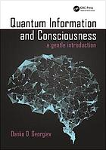 Danko D. Georgiev
Danko D. Georgiev
Quantum Information and Consciousness: A Gentle Introduction
(CRC Press 2018)
This book shows how quantum information theory may be applied to the study of brain function. It includes a concise introduction to classical and quantum information theory, theoretical neuroscience, and philosophy of mind. It aims to address the question of consciousness and the mind-body relationship within the framework of modern theoretical physics. See CRC Press | Amazon | Google
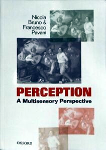 Nicola Bruno & Francesco Pavani
Nicola Bruno & Francesco Pavani
Perception: A Multisensory Perspective
(Oxford 2018)
This introductory text and useful reference adopts a multisensory approach to perception. Rather than discussing each sense separately, it defines perception as intrinsically multisensory from the start and examines multisensory interactions as the key process behind how we perceive and control our own body and recognise objects in space and time. See Oxford | Amazon | Google
 Sam Baron & Kristie Miller
Sam Baron & Kristie Miller
An Introduction to the Philosophy of Time
(Polity 2018)
Time is central to our lived experience of the world. Yet it is startlingly difficult to reconcile the way we seem to experience time with many of the theories presented to us in physics and metaphysics. This comprehensive and accessible introduction guides the unfamiliar reader through difficult questions at the intersection of the metaphysics and physics of time. See Polity | Amazon | Google
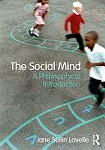 Jane Suilin Lavelle
Jane Suilin Lavelle
The Social Mind: A Philosophical Introduction
(Routledge 2018)
We spend a lot of time thinking about other people: their motivations, what they are thinking, why they want particular things, and so on. This book examines the cognitive foundations of this amazing ability. It considers key philosophical theories of how we think about other minds and measures them against empirical findings from a variety of scientific disciplines. See Routledge | Amazon | Google
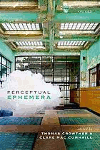 T. Crowther & C. Mac Cumhaill (eds.)
T. Crowther & C. Mac Cumhaill (eds.)
Perceptual Ephemera
(Oxford 2018)
Most research on perception has focused on the perceptual experience of three-dimensional, solid, bounded material objects like tables and tomatoes. But we also experience such ephemeral things as rainbows and surfaces, shadows and absences. This book presents fifteen new essays on the perceptual experience of such ephemera. See Oxford | Amazon | Google
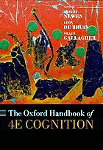 Newen, De Bruin & Gallagher (eds.)
Newen, De Bruin & Gallagher (eds.)
The Oxford Handbook of 4E Cognition
(Oxford 2018)
4E cognition (embodied, embedded, enactive and extended) is a young and thriving field of interdisciplinary research. It assumes that cognition is shaped and structured by dynamic interactions between the brain, body and both the physical and social environments. This up-to-date handbook investigates this recent paradigm. See Oxford | Amazon | Google
 Berit Brogaard
Berit Brogaard
Seeing and Saying: The Language of Perception and the Representational View of Experience
(Oxford 2018)
Brogaard argues that visual experience is like belief in having a representational content. Her defense turns on ordinary speech. She offers an analysis of what we say when we say that the world appears to be a certain way. She then argues that it supports the view that visual experience has a representational content that mediates between you and the world when you visually perceive. See Oxford | Amazon | Google
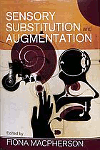 Fiona Macpherson (ed.)
Fiona Macpherson (ed.)
Sensory Substitution and Augmentation
(Oxford 2018)
Sensory substitution and augmentation devices try to replace or enhance one sense by using another. For example, in tactile-vision, stimulation of the skin by camera input is used to replace ordinary vision through our eyes. This volume brings together neuroscientists, psychologists and philosophers who are developing these technologies and studying their use. See Oxford | Amazon | Google
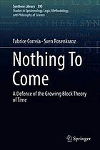 Fabrice Correia & Sven Rosenkranz
Fabrice Correia & Sven Rosenkranz
Nothing To Come: A Defence of the Growing Block Theory of Time
(Springer 2018)
The growing block theory of time was first conceived by C. D. Broad. This book offers a perspicuous and lean version of the theory, defends it against notorious objections found in the literature, and shows how it can be derived from a more general theory, consistent with relativistic spacetime, on the pre-relativistic assumption of an absolute and total temporal order. See Springer | Amazon | Google
 Christopher Jude McCarroll
Christopher Jude McCarroll
Remembering from the Outside: Personal Memory and the Perspectival Mind
(Oxford 2018)
When recalling events that one personally experienced, one often visualises the remembered scene as one originally saw it: from an internal visual perspective. Sometimes, however, one sees oneself in the remembered scene: from an external ‘observer perspective.’ In such cases one remembers from-the-outside. This book is about such memories. See Oxford | Amazon | Google
 Angela Mendelovici
Angela Mendelovici
The Phenomenal Basis of Intentionality
(Oxford 2018)
It has been long assumed that the best way to explain intentionality is in terms of tracking relations, information, functional roles, and so on. This book breaks from this tradition, arguing that the only empirically adequate and viable theory of intentionality is one in terms of phenomenal consciousness – the felt, subjective, or qualitative feature of mental life. See Oxford | Amazon | Google
 Alex Byrne
Alex Byrne
Transparency and Self-Knowledge
(Oxford 2018)
Byrne argues in this book that one comes to know that one is in a mental state by an inference from a worldly premise to the conclusion that one is in that state. The mind, on this account, is ‘transparent’: self-knowledge is achieved by an ‘outward glance’ at the corresponding tract of the world, not by an ‘inward glance’ at one’s own mind. See Oxford | Amazon | Google
 Carrie Figdor
Carrie Figdor
Pieces of Mind: The Proper Domain of Psychological Predicates
(Oxford 2018)
When scientists report that fruit flies and plants decide, bacteria communicate linguistically, and neurons prefer, the Literalist claims that the most plausible interpretation of these unexpected use of psychological predicates is the literal one. My goals in this book are to defend Literalism and explore some of its implications for the philosophy of mind. See Oxford | Amazon | Google
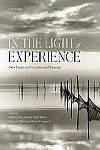 Johan Gersel et al. (eds.)
Johan Gersel et al. (eds.)
In the Light of Experience: New Essays on Perception and Reasons
(Oxford 2018)
How does the idea that perception must provide reasons for our empirical judgements constrain our conception of perceptual experience? This volume presents ten new essays which address this fundamental question in different ways. Contributors include Charles Travis, John McDowell and other contemporary experts. See Oxford | Amazon | Google
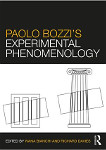 Ivana Bianchi & Richard Davies (eds.)
Ivana Bianchi & Richard Davies (eds.)
Paolo Bozzi’s Experimental Phenomenology
(Routledge 2018)
Paolo Bozzi was an unusual and original psychologist and philosopher, who developed a distinctive picture of the psychology and the phenomenology of perception, especially in connection to the philosophical question of realism. This volume of 18 of his essays, with commentaries by contemporary experts, will help give his work the wider recognition it deserves. See Routledge | Amazon | Google
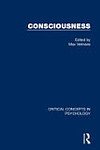 Max Velmans (ed.)
Max Velmans (ed.)
Consciousness
(Routledge 2018)
Edited by Max Velmans, Consciousness is a four-volume collection of both the canonical and the best cutting-edge scholarship in the field. It provides a synoptic view of key issues and current debates as well as guidance to likely future developments. A new title in Routledge’s Critical Concepts in Psychology series. See Routledge | Amazon | Google
 Nick Chater
Nick Chater
The Mind is Flat: The Illusion of Mental Depth and The Improvised Mind
(Penguin 2018)
Most of us assume that our beliefs and desires arise from the murky depths of our minds, and, if only we could access this mysterious world, we could truly understand ourselves. For more than a century, psychologists and psychiatrists have struggled to discover what lies below our mental surface. In this book, Chater reveals that this entire enterprise is utterly misguided. See Penguin | Amazon | Google
 Alan Jasanoff
Alan Jasanoff
The Biological Mind: How Brain, Body, and Environment Collaborate to Make Us Who We Are
(Basic Books 2018)
To many, the brain is the seat of personal identity and autonomy. But the way we talk about the brain is often rooted more in mystical conceptions of the soul than in scientific fact. A brain is neither a soul nor an electrical network: it is a bodily organ, and it cannot be separated from its surroundings. Our selves aren’t just inside our heads – they’re spread throughout our bodies and beyond. See Basic Books | Amazon | Google
 Hannah Critchlow
Hannah Critchlow
Consciousness
(Penguin 2018)
A clear, simple and entertaining introduction to the question of what it means to be conscious. Written by celebrated neurologist and neuropsychologist Hannah Critchlow, this book will take you on a voyage to discover what allows the grey matter in our skulls to produce our emotions, personality traits, thoughts and memories. See Penguin | Amazon | Google
 Richard Kenneth Atkins
Richard Kenneth Atkins
Charles S. Peirce’s Phenomenology: Analysis and Consciousness
(Oxford 2018)
No one would deny that the sound of a falling pin is less intense than the feeling of a hot poker pressed against the skin, or that recollecting something seen decades ago is less vivid than seeing it now. Yet Locke is quick to dismiss a blind man’s report that the color scarlet is like the sound of a trumpet. Peirce, by striking contrast, maintains that the blind man is correct. See Oxford | Amazon | Google
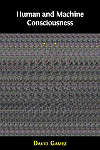 David Gamez
David Gamez
Human and Machine Consciousness
(Open Book 2018)
Gamez presents a new foundation for the study of consciousness, one of the most fundamental and difficult problems of our time. He sets out a bold interpretation of consciousness that neutralizes the philosophical problems and explains how we can make scientific predictions about the consciousness of animals, brain-damaged patients and machines. See Open Book | Amazon | Google
 William S. Robinson
William S. Robinson
Epiphenomenal Mind: An Integrated Outlook on Sensations, Beliefs, and Pleasure
(Routledge 2018)
According to epiphenomenalism, our behavior is caused by events in our brains that also cause our mentality, where this resulting mentality does not in turn cause anything. This book defends this view. It builds on the author’s previous work by moving beyond a discussion of sensations to other mental aspects such as beliefs, desires, pleasure, and displeasure. See Routledge | Amazon | Google
 Damien Broderick
Damien Broderick
Consciousness and Science Fiction
(Springer 2018)
What makes consciousness the “hard problem” of philosophy, still unsolved after millennia of probing? This book looks at the science and philosophy of consciousness and at many inspiring fictional examples and finds strange, challenging answers. A refreshing romp through the science and science fiction of consciousness. See Springer | Amazon | Google
 Mihretu P. Guta (ed.)
Mihretu P. Guta (ed.)
Consciousness and the Ontology of Properties
(Routledge 2018)
This volume unifies fourteen new essays in a collective objective: the need for a proper ontology of properties to understand the hard problem of consciousness. Topics covered range from substance dualism, mental causation and artificial intelligence to the logic of conceivability, extended minds and the neural correlates of consciousness. See Routledge | Amazon | Google
 A. Marmodoro & S. Cartwright (eds.)
A. Marmodoro & S. Cartwright (eds.)
A History of Mind and Body in Late Antiquity
(Cambridge 2018)
The mind-body relation was at the forefront of philosophy and theology in late antiquity, a time of great intellectual innovation. This volume explores ideas about mind and body during this important period, considering both pagan and Christian thought about issues such as resurrection, incarnation and asceticism. See Cambridge | Amazon | Google
 Chakravarthi Ram-Prasad
Chakravarthi Ram-Prasad
Human Being, Bodily Being: Phenomenology from Classical India
(Oxford 2018)
Ram-Prasad offers new perspectives on contemporary phenomenological theories of body and subjectivity by examining four classical Indian texts from different genres that deal with bodily subjectivity. He argues for a ‘phenomenological ecology’ of bodily subjectivity that obviates the need to choose between apparently incompatible perspectives of the human. See Oxford | Amazon | Google
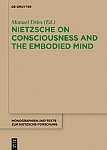 Manuel Dries (ed.)
Manuel Dries (ed.)
Nietzsche on Consciousness and the Embodied Mind
(de Gruyter 2018)
This volume of sixteen essays from analytic and continental perspectives seeks to deepen the appreciation of Nietzsche’s contribution to our understanding of consciousness and the mind. His rich and perspicacious treatment of consciousness, mind, and body cannot be reduced to any single discipline, and has the potential to speak to many. See de Gruyter | Amazon | Google
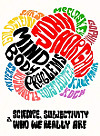 John Horgan
John Horgan
Mind-Body Problems: Science, Subjectivity & Who We Really Are
(Free Online Book 2018)
Acclaimed science journalist John Horgan presents a radical new perspective on a deep and ancient mystery, the mind-body problem. Encompassing riddles such as consciousness, free will, morality and the meaning of life, Horgan weaves stories about leading mind-body theories and theorists into a compelling narrative about what we we are, can be and should be. See mindbodyproblems.com | Amazon
 John Perry
John Perry
Dialogue on Consciousness: Minds, Brains, and Zombies
(Hackett 2018)
Perry revisits the cast of characters of his classic A Dialogue on Personal Identity and Immortality in this absorbing dialogue on consciousness. Cartesian dualism, property dualism, materialism, the problem of other minds … Gretchen Weirob and her friends tackle these topics and more in a dialogue that exemplifies the subtleties and intricacies of philosophical reflection. See Hackett | Amazon | Google
 Arthur S. Reber
Arthur S. Reber
The First Minds: Caterpillars, Karyotes, and Consciousness
(Oxford 2018)
Reber presents a novel theory of the origins of mind and consciousness, on which sentience emerged with life itself. The most primitive unicellular species of bacteria are conscious, though in a primitive way. Hints that cells might be conscious can be found in the writings of a few cell biologists but a fully developed theory has never been put forward before. See Oxford | Amazon | Google
 Susanna Schellenberg
Susanna Schellenberg
The Unity of Perception: Content, Consciousness, Evidence
(Oxford 2018)
Offers an empirically-informed account of perception that unites its cognitive, epistemological, and phenomenological roles. The key idea is that perception is constituted by employing perceptual capacities, such as the capacity to discriminate instances of red from blue. One larger aim of the book is to bring back mental capacities as a way of analyzing the mind. See Oxford | Amazon | Google
 Carlo Rovelli
Carlo Rovelli
The Order of Time
(Penguin 2018)
We all experience time, but the more scientists learn about it, the more mysterious it remains. We think of it as uniform and universal, moving steadily from past to future, measured by clocks. Rovelli tears down these assumptions one by one, revealing a strange universe where at the most fundamental level time disappears. See Penguin | Amazon | Google
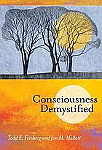 Todd E. Feinberg & Jon M. Mallatt
Todd E. Feinberg & Jon M. Mallatt
Consciousness Demystified
(MIT 2018)
Feinberg and Mallatt attempt to demystify consciousness by explaining that the subjective, experiencing aspects of consciousness are created by natural brain processes that evolved in natural ways. While subjective experience is unique in nature, it need not be mysterious. We need not invoke the unknown or unknowable to explain its creation. See MIT | Amazon | Google
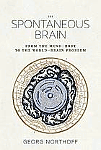 Georg Northoff
Georg Northoff
The Spontaneous Brain: From the Mind–Body to the World–Brain Problem
(MIT 2018)
Northoff does not propose new solutions to the mind-body problem in this book but questions the problem itself. We are better off addressing consciousness and other mental features in terms of the relationship between world and brain, he argues: philosophers should consider the world-brain problem rather than the mind-body problem. See MIT | Amazon | Google
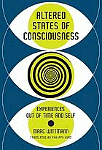 Marc Wittmann
Marc Wittmann
Altered States of Consciousness: Experiences Out of Time and Self
(MIT 2018, trans. Philippa Hurd)
During extraordinary moments of consciousness—shock, meditative states and sudden mystical revelations, out-of-body experiences, or drug intoxication—our senses of time and self are altered; we may even feel time and self dissolving. Wittmann shows how studying such experiences can help solve the mystery of consciousness. See MIT | Amazon | Google
 Jasper van Buuren
Jasper van Buuren
Body and Reality: An Examination of the Relationships between the Body Proper, Physical Reality, and the Phenomenal World Starting from Plessner and Merleau-Ponty
(Transcript Verlag 2018)
Is the phenomenal world of everyday experience just an illusion produced in the brain? Or is Merleau-Ponty right to defend the fundamental character of the phenomenal world while rejecting physical realism? By exploring the nature of the body proper in Merleau-Ponty and Plessner, van Buuren argues that physical and phenomenal realism are not mutually exclusive but complementary. See Transcript Verlag | Amazon | Google
 Paul Broks
Paul Broks
The Darker the Night, the Brighter the Stars: A Neuropsychologist’s Odyssey Through Consciousness
(Allen Lane 2018)
When celebrated neuropsychologist Paul Broks’ wife died of cancer, he found himself plunged into the world of the bereaved. As he experienced the alienation and suffering that make us human, his clinician-self watched on with keen interest. The result is a journey through grief, philosophy, consciousness, humanity and magical thinking - seen through the prism of a lifetime’s work in neuroscience. See Amazon | Google
 Marcello Massimini & Giulio Tononi
Marcello Massimini & Giulio Tononi
Sizing Up Consciousness: Towards an Objective Measure of the Capacity for Experience
(Oxford 2018, trans. Frances Anderson)
Using the Integrated Information Theory as a guiding principle, Massimini and Tononi take the reader along a fascinating journey from the cerebral cortex to the cerebellum, from wakefulness to sleep, anesthesia, and coma, supercomputers, octopuses, dolphins, and much more besides. Originally published in Italian in 2013. See Oxford | Amazon | Google
 D. Bain, M. Brady & J. Corns (eds.)
D. Bain, M. Brady & J. Corns (eds.)
Philosophy of Pain: Unpleasantness, Emotion, and Deviance
(Routledge 2018)
Pain has received increasing attention as philosophers, psychologists, and neuroscientists try to answer deep and difficult questions about it. What is pain? What makes pain unpleasant? How is pain related to the emotions? This volume provides a rich and wide-ranging exploration of these questions and important new insights into the philosophy of pain. See Routledge | Amazon | Google
 Mark Eli Kalderon
Mark Eli Kalderon
Sympathy in Perception
(Cambridge 2018)
This wide-ranging study presents multiple perspectives on the phenomenon of perception, discussing touch and hearing as well as vision. Drawing on the rich history of the subject, Kalderon shows how analytic and continental approaches to it are connected and argues for new orientations when thinking about the presentation of perception. See Cambridge | Amazon | Google
 Elizabeth Schechter
Elizabeth Schechter
Self-Consciousness and “Split” Brains: The Mind’s I
(Oxford 2018)
In the first full philosophical treatment of the issue, Schechter argues that there are in fact two minds, subjects of experience, and intentional agents inside each split-brain human being: Right and Left. Nonetheless, each split-brain subject is one of us. The key to reconciling these claims is to understand the ways in which each of us is transformed by self-consciousness. See Oxford | Amazon | Google
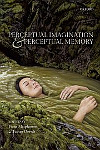 Fiona Macpherson & Fabian Dorsch (eds.)
Fiona Macpherson & Fabian Dorsch (eds.)
Perceptual Imagination and Perceptual Memory
(Oxford 2018)
Ten new essays on perceptual imagination and perceptual memory. How do perceptual imagination and memory resemble and differ from each other and from other kinds of sensory experience? What role does each play in perception and in the acquisition of knowledge? These are the two central questions addressed in this volume. See Oxford | Amazon | Google
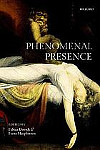 Fabian Dorsch & Fiona Macpherson (eds.)
Fabian Dorsch & Fiona Macpherson (eds.)
Phenomenal Presence
(Oxford 2018)
Many features of reality figure consciously in perceptual experience: from colours and shapes to volumes and backsides; from natural or artifactual kinds to reasons for perceptual belief; from the existence of objects to the relationality of our awareness of them. This volume explore various interesting and unobvious cases of such phenomenal presence. See Oxford | Amazon | Google
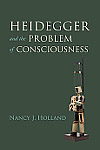 Nancy J. Holland
Nancy J. Holland
Heidegger and the Problem of Consciousness
(Indiana U Press 2018)
Holland turns to Heidegger to help understand an age-old question: Is there a split between body and mind? Arguing against positions that define consciousness as an overarching phenomenon or reduce it to the brain or physicality, she contends that consciousness is relational and it is this relationship that allows us to inhabit and negotiate the world. See Indiana | Amazon | Google
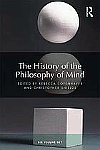 R. Copenhaver & C. Shields (eds.)
R. Copenhaver & C. Shields (eds.)
The History of the Philosophy of Mind (Six Volume Set)
(Routledge 2018)
A major six-volume reference covering the key topics, thinkers and debates from antiquity to the present day. Volume 1. Antiquity; Volume 2. The early and high middle ages; Volume 3. The late middle ages and renaissance; Volume 4. The early modern and modern ages; Volume 5. The nineteenth century; Volume 6. The twentieth and twenty-first centuries. See Routledge | Amazon | Google
 J. Christopher Maloney
J. Christopher Maloney
What It Is Like To Perceive: Direct Realism and the Phenomenal Character of Perception
(Oxford 2018)
Maloney argues that, unlike other cognitive modes, perception is immediate acquaintance with the object of thought. Although all mental representations carry content, the vehicles of perceptual representation are the very objects represented. The perceiving mind is an extended mind: perception is unbrokered cognition of what is real, exactly as it really is. See Oxford | Amazon | Google
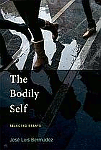 José Luis Bermúdez
José Luis Bermúdez
The Bodily Self: Selected Essays on Self-Consciousness
(MIT 2018)
Nine substantially revised and expanded articles and a brand new chapter explore how the rich and sophisticated forms of self-consciousness with which we are most familiar—as philosophers, psychologists, and as ordinary, reflective individuals—depend on a complex underpinning that has been largely invisible to students of the self and self-consciousness. See MIT | Amazon | Google
 Sebastian Rödl
Sebastian Rödl
Self-Consciousness and Objectivity: An Introduction to Absolute Idealism
(Harvard 2018)
Rödl undermines a foundational dogma of contemporary philosophy: that knowledge, in order to be objective, must be knowledge of something that is as it is, independent of being known to be so. This profound work revives the thought that knowledge, precisely on account of being objective, is self-knowledge: knowledge knowing itself. See Harvard | Amazon | Google
 Frédérique de Vignemont
Frédérique de Vignemont
Mind the Body: An Exploration of Bodily Self-Awareness
(Oxford 2018)
Our own body seems to be the object that we know the best yet bodily awareness has attracted little attention in the literature. De Vignemont provides the first comprehensive treatment of bodily awareness and of the sense of bodily ownership, combining philosophical analysis with recent experimental results from cognitive science. See Oxford | Amazon | Google
 Tim Parks
Tim Parks
Out of My Head: On the Trail of Consciousness
(Penguin 2018)
The gripping, highly personal, often surprisingly funny, story of the author’s quest to discover more about the fascinating topic of consciousness. Framing metaphysical considerations and laboratory experiments in terms we can all understand, it invites us to see space, time, colour and smell, sounds and sensations in an entirely new way. See Penguin | Amazon | Google
 Sean Enda Power
Sean Enda Power
Philosophy of Time and Perceptual Experience
(Routledge 2018)
Power illustrates how the metaphysics of time can be applied to thinking about perceptual experience. He examines how time structures perceptual experience and how such structuring can make experience trustworthy or erroneous. The book will appeal to those interested in the philosophy of time and debates about the trustworthiness of experience. See Routledge | Amazon | Google
 Rowland Stout (ed.)
Rowland Stout (ed.)
Process, Action, and Experience
(Oxford 2018)
Experiences and actions are usually treated as completed events rather than ongoing processes. But only ongoing processes can be present to a subject in the way required for conscious experience and practical self-knowledge. This volume asks if we should take processes rather than events to be the proper subject matter of the philosophy of mind and action. See Oxford | Amazon | Google
 K. Michaelian, D. Debus & D. Perrin (eds.)
K. Michaelian, D. Debus & D. Perrin (eds.)
New Directions in the Philosophy of Memory
(Routledge 2018)
Although philosophers have explored memory since antiquity, recent years have seen the birth of philosophy of memory as a distinct field. This volume—the first of its kind—consists of seventeen newly-commissioned chapters by leading researchers in the philosophy of memory and charts emerging directions of research in the field. See Routledge | Amazon | Google
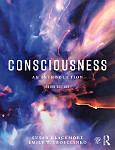 Susan Blackmore & Emily T. Troscianko
Susan Blackmore & Emily T. Troscianko
Consciousness: An Introduction
(Routledge 2018, 3rd edition)
Revised, updated, and supplemented with new perspectives, this third edition of this classic book is a sure-footed guide through the dense forest of consciousness studies. The authors not only inform us about the science and philosophy of consciousness, but also teach us how to think about the topic. Previous editions 2003, 2010. See Routledge | Amazon | Google
 D. M. Hutchinson
D. M. Hutchinson
Plotinus on Consciousness
(Cambridge 2018)
Plotinus is the first Greek philosopher to hold a systematic theory of consciousness. Its key feature is that it involves multiple layers of experience: different layers of consciousness at different levels of self. This yields a rich experiential world and a robust notion of subjectivity, one remarkably different from that found in the Post-Cartesian tradition. See Cambridge | Amazon | Google
 Andreas Elpidorou & Guy Dove
Andreas Elpidorou & Guy Dove
Consciousness and Physicalism: A Defense of a Research Program
(Routledge 2018)
Although physicalism has traditionally been understood as a metaphysical thesis, Elpidorou and Dove argue that there is an alternative and indeed preferable understanding of physicalism that both renders physicalism a scientifically-informed explanatory project and allows us to make progress on the ontological problem of consciousness. See Routledge | Amazon | Google
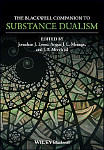 Loose, Menuge & Moreland (eds.)
Loose, Menuge & Moreland (eds.)
The Blackwell Companion to Substance Dualism
(Wiley 2018)
Substance dualism has been dismissed as an archaic and defeated position in philosophy of mind, but in recent years, the topic has experienced a resurgence and has been restored to contemporary prominence by a growing minority of philosophers prepared to interrogate the core principles upon which past objections and misunderstandings rest. See Wiley | Amazon | Google
 Thomas Natsoulas
Thomas Natsoulas
States of Consciousness: The Pulses of Experience
(Cambridge 2018)
This book extends Natsoulas’ development of the psychology of consciousness by giving sustained attention to the stream of consciousness and its component ‘pulses of experience.’ His unrivalled scholarship across psychology, philosophy and cognate fields results in an in-depth analysis of sophisticated psychological accounts of consciousness. See Cambridge | Amazon | Google
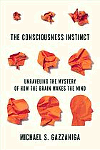 Michael S. Gazzaniga
Michael S. Gazzaniga
The Consciousness Instinct: Unraveling the Mystery of How the Brain Makes the Mind
(Macmillan 2018)
How do neurons turn into minds? How does physical “stuff”—atoms, molecules, chemicals, and cells—create the vivid and various worlds inside our heads? Gazzaniga puts the latest research in conversation with the history of human thinking about the mind, giving a big-picture view of what science has revealed about consciousness. See Macmillan | Amazon | Google
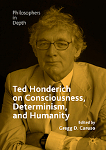 Gregg D. Caruso (ed.)
Gregg D. Caruso (ed.)
Ted Honderich on Consciousness, Determinism, and Humanity
(Springer 2018)
Fourteen original essays provide a comprehensive critical treatment of Ted Honderich’s philosophy, focusing on three major areas: (1) his theory of consciousness, (2) his extensive work on determinism and freedom, and (3) his views on right and wrong, including his Principle of Humanity and his judgments on terrorism. See Springer | Amazon | Google
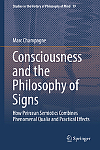 Marc Champagne
Marc Champagne
Consciousness and the Philosophy of Signs: How Peircean Semiotics Combines Phenomenal Qualia and Practical Effects
(Springer 2018)
It is often thought that consciousness has a qualitative dimension that cannot be tracked by science. Recently, however, some have argued that this worry stems not from an elusive feature of the mind, but from the nature of the concepts used to describe conscious states. Champagne draws on the philosophy of signs or semiotics to develop a new take on this strategy. See Springer | Amazon | Google
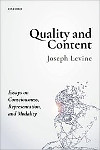 Joseph Levine
Joseph Levine
Quality and Content: Essays on Consciousness, Representation, and Modality
(Oxford 2018)
Joseph Levine draws together a series of essays in which he has developed his distinctive approach to philosophy of mind. All of the essays in some way respond to various materialist attempts to close the “explanatory gap” as well as outline a different conception of conscious experience that would accommodate the gap. See Oxford | Amazon | Google
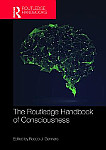 Rocco J. Gennaro (ed.)
Rocco J. Gennaro (ed.)
The Routledge Handbook of Consciousness
(Routledge 2018)
Given the explosion of work on consciousness in the last 30–40 years from philosophers, psychologists, and neurologists, there is a need for an interdisciplinary, comprehensive volume that brings together contributions from a wide range of experts on fundamental topics. This volume of 34 chapters fills this need. See Routledge | Amazon | Google
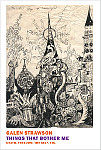 Galen Strawson
Galen Strawson
Things That Bother Me: Death, Freedom, the Self, Etc.
(New York Review of Books 2018)
Galen Strawson is the Montaigne of modern philosophers: endlessly curious, enormously erudite, unafraid of provocative propositions, and able to describe them clearly. He also shares with Montaigne a fascination with the elusive natures of self and consciousness. The essays collected here draw on life, literature and philosophy. See NYRB | Amazon | Google
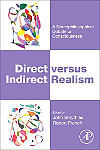 John Smythies & Robert French (eds.)
John Smythies & Robert French (eds.)
Direct versus Indirect Realism: A Neurophilosophical Debate on Consciousness
(Elsevier 2018)
The dominant view of philosophers of perception is “direct realism,” on which the immediate objects of perception are distal physical objects. In contrast, those working in the neurosciences are persuaded that conscious experiences consist of reconstructions from information encoded in neural states and is hence indirect. This volume debates the issue. See Elsevier | Amazon | Google
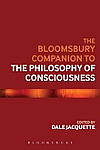 Dale Jacquette (ed.)
Dale Jacquette (ed.)
The Bloomsbury Companion to the Philosophy of Consciousness
(Bloomsbury 2018)
From Descartes and Cartesian mind-body dualism in the 17th century through to 21st-century concerns about artificial intelligence programming, this volume presents a compelling history and up-to-date overview of this burgeoning subject area. An authoritative guide for studying the past, present and future of consciousness. See Bloomsbury | Amazon | Google
 Antonio Damasio
Antonio Damasio
The Strange Order of Things: Life, Feeling, and the Making of Cultures
(Penguin Random House 2018)
For too long we have thought of ourselves as rational minds inhabiting insentient mechanical bodies. Damasio shows instead how our minds are rooted in feeling, a creation of our nervous system with an evolutionary history going back to ancient unicellular life that enables us to shape distinctively human cultures. See Penguin | Amazon | Google | Siri Hustvedt review | Damasio interview

Brentano’s Philosophical System: Mind, Being, Value
(Oxford 2018)
A rich exploration of the philosophy of a great nineteenth-century thinker, centering around the connection between mind and reality. Kriegel develops Brentano’s ideas where they are overly programmatic or superseded by developments since his death a century ago; and offers a partial defense of Brentano’s system as plausible, creative and thought-provoking. See Oxford | Amazon | Google

Occasionalism: From Metaphysics to Science
(Brepols 2018)
A map of occasionalism in all its forms, with a focus on 17th-century supporters and adversaries. These include canonical authors like Cordemoy, La Forge, Malebranche, Spinoza, and Leibniz but also figures like Clauberg, Clerselier, Fénelon, Fernel, Régis, and Regius. Also covers earlier Arabic and Scholastic sources and later developments in Berkeley, Wolff, and Hume. See Brepols | Google

Quantum Information and Consciousness: A Gentle Introduction
(CRC Press 2018)
This book shows how quantum information theory may be applied to the study of brain function. It includes a concise introduction to classical and quantum information theory, theoretical neuroscience, and philosophy of mind. It aims to address the question of consciousness and the mind-body relationship within the framework of modern theoretical physics. See CRC Press | Amazon | Google

Perception: A Multisensory Perspective
(Oxford 2018)
This introductory text and useful reference adopts a multisensory approach to perception. Rather than discussing each sense separately, it defines perception as intrinsically multisensory from the start and examines multisensory interactions as the key process behind how we perceive and control our own body and recognise objects in space and time. See Oxford | Amazon | Google

An Introduction to the Philosophy of Time
(Polity 2018)
Time is central to our lived experience of the world. Yet it is startlingly difficult to reconcile the way we seem to experience time with many of the theories presented to us in physics and metaphysics. This comprehensive and accessible introduction guides the unfamiliar reader through difficult questions at the intersection of the metaphysics and physics of time. See Polity | Amazon | Google

The Social Mind: A Philosophical Introduction
(Routledge 2018)
We spend a lot of time thinking about other people: their motivations, what they are thinking, why they want particular things, and so on. This book examines the cognitive foundations of this amazing ability. It considers key philosophical theories of how we think about other minds and measures them against empirical findings from a variety of scientific disciplines. See Routledge | Amazon | Google

Perceptual Ephemera
(Oxford 2018)
Most research on perception has focused on the perceptual experience of three-dimensional, solid, bounded material objects like tables and tomatoes. But we also experience such ephemeral things as rainbows and surfaces, shadows and absences. This book presents fifteen new essays on the perceptual experience of such ephemera. See Oxford | Amazon | Google

The Oxford Handbook of 4E Cognition
(Oxford 2018)
4E cognition (embodied, embedded, enactive and extended) is a young and thriving field of interdisciplinary research. It assumes that cognition is shaped and structured by dynamic interactions between the brain, body and both the physical and social environments. This up-to-date handbook investigates this recent paradigm. See Oxford | Amazon | Google

Seeing and Saying: The Language of Perception and the Representational View of Experience
(Oxford 2018)
Brogaard argues that visual experience is like belief in having a representational content. Her defense turns on ordinary speech. She offers an analysis of what we say when we say that the world appears to be a certain way. She then argues that it supports the view that visual experience has a representational content that mediates between you and the world when you visually perceive. See Oxford | Amazon | Google

Sensory Substitution and Augmentation
(Oxford 2018)
Sensory substitution and augmentation devices try to replace or enhance one sense by using another. For example, in tactile-vision, stimulation of the skin by camera input is used to replace ordinary vision through our eyes. This volume brings together neuroscientists, psychologists and philosophers who are developing these technologies and studying their use. See Oxford | Amazon | Google

Nothing To Come: A Defence of the Growing Block Theory of Time
(Springer 2018)
The growing block theory of time was first conceived by C. D. Broad. This book offers a perspicuous and lean version of the theory, defends it against notorious objections found in the literature, and shows how it can be derived from a more general theory, consistent with relativistic spacetime, on the pre-relativistic assumption of an absolute and total temporal order. See Springer | Amazon | Google

Remembering from the Outside: Personal Memory and the Perspectival Mind
(Oxford 2018)
When recalling events that one personally experienced, one often visualises the remembered scene as one originally saw it: from an internal visual perspective. Sometimes, however, one sees oneself in the remembered scene: from an external ‘observer perspective.’ In such cases one remembers from-the-outside. This book is about such memories. See Oxford | Amazon | Google

The Phenomenal Basis of Intentionality
(Oxford 2018)
It has been long assumed that the best way to explain intentionality is in terms of tracking relations, information, functional roles, and so on. This book breaks from this tradition, arguing that the only empirically adequate and viable theory of intentionality is one in terms of phenomenal consciousness – the felt, subjective, or qualitative feature of mental life. See Oxford | Amazon | Google

Transparency and Self-Knowledge
(Oxford 2018)
Byrne argues in this book that one comes to know that one is in a mental state by an inference from a worldly premise to the conclusion that one is in that state. The mind, on this account, is ‘transparent’: self-knowledge is achieved by an ‘outward glance’ at the corresponding tract of the world, not by an ‘inward glance’ at one’s own mind. See Oxford | Amazon | Google

Pieces of Mind: The Proper Domain of Psychological Predicates
(Oxford 2018)
When scientists report that fruit flies and plants decide, bacteria communicate linguistically, and neurons prefer, the Literalist claims that the most plausible interpretation of these unexpected use of psychological predicates is the literal one. My goals in this book are to defend Literalism and explore some of its implications for the philosophy of mind. See Oxford | Amazon | Google

In the Light of Experience: New Essays on Perception and Reasons
(Oxford 2018)
How does the idea that perception must provide reasons for our empirical judgements constrain our conception of perceptual experience? This volume presents ten new essays which address this fundamental question in different ways. Contributors include Charles Travis, John McDowell and other contemporary experts. See Oxford | Amazon | Google

Paolo Bozzi’s Experimental Phenomenology
(Routledge 2018)
Paolo Bozzi was an unusual and original psychologist and philosopher, who developed a distinctive picture of the psychology and the phenomenology of perception, especially in connection to the philosophical question of realism. This volume of 18 of his essays, with commentaries by contemporary experts, will help give his work the wider recognition it deserves. See Routledge | Amazon | Google

Consciousness
(Routledge 2018)
Edited by Max Velmans, Consciousness is a four-volume collection of both the canonical and the best cutting-edge scholarship in the field. It provides a synoptic view of key issues and current debates as well as guidance to likely future developments. A new title in Routledge’s Critical Concepts in Psychology series. See Routledge | Amazon | Google

The Mind is Flat: The Illusion of Mental Depth and The Improvised Mind
(Penguin 2018)
Most of us assume that our beliefs and desires arise from the murky depths of our minds, and, if only we could access this mysterious world, we could truly understand ourselves. For more than a century, psychologists and psychiatrists have struggled to discover what lies below our mental surface. In this book, Chater reveals that this entire enterprise is utterly misguided. See Penguin | Amazon | Google

The Biological Mind: How Brain, Body, and Environment Collaborate to Make Us Who We Are
(Basic Books 2018)
To many, the brain is the seat of personal identity and autonomy. But the way we talk about the brain is often rooted more in mystical conceptions of the soul than in scientific fact. A brain is neither a soul nor an electrical network: it is a bodily organ, and it cannot be separated from its surroundings. Our selves aren’t just inside our heads – they’re spread throughout our bodies and beyond. See Basic Books | Amazon | Google

Consciousness
(Penguin 2018)
A clear, simple and entertaining introduction to the question of what it means to be conscious. Written by celebrated neurologist and neuropsychologist Hannah Critchlow, this book will take you on a voyage to discover what allows the grey matter in our skulls to produce our emotions, personality traits, thoughts and memories. See Penguin | Amazon | Google

Charles S. Peirce’s Phenomenology: Analysis and Consciousness
(Oxford 2018)
No one would deny that the sound of a falling pin is less intense than the feeling of a hot poker pressed against the skin, or that recollecting something seen decades ago is less vivid than seeing it now. Yet Locke is quick to dismiss a blind man’s report that the color scarlet is like the sound of a trumpet. Peirce, by striking contrast, maintains that the blind man is correct. See Oxford | Amazon | Google

Human and Machine Consciousness
(Open Book 2018)

Gamez presents a new foundation for the study of consciousness, one of the most fundamental and difficult problems of our time. He sets out a bold interpretation of consciousness that neutralizes the philosophical problems and explains how we can make scientific predictions about the consciousness of animals, brain-damaged patients and machines. See Open Book | Amazon | Google

Epiphenomenal Mind: An Integrated Outlook on Sensations, Beliefs, and Pleasure
(Routledge 2018)
According to epiphenomenalism, our behavior is caused by events in our brains that also cause our mentality, where this resulting mentality does not in turn cause anything. This book defends this view. It builds on the author’s previous work by moving beyond a discussion of sensations to other mental aspects such as beliefs, desires, pleasure, and displeasure. See Routledge | Amazon | Google

Consciousness and Science Fiction
(Springer 2018)
What makes consciousness the “hard problem” of philosophy, still unsolved after millennia of probing? This book looks at the science and philosophy of consciousness and at many inspiring fictional examples and finds strange, challenging answers. A refreshing romp through the science and science fiction of consciousness. See Springer | Amazon | Google

Consciousness and the Ontology of Properties
(Routledge 2018)
This volume unifies fourteen new essays in a collective objective: the need for a proper ontology of properties to understand the hard problem of consciousness. Topics covered range from substance dualism, mental causation and artificial intelligence to the logic of conceivability, extended minds and the neural correlates of consciousness. See Routledge | Amazon | Google

A History of Mind and Body in Late Antiquity
(Cambridge 2018)
The mind-body relation was at the forefront of philosophy and theology in late antiquity, a time of great intellectual innovation. This volume explores ideas about mind and body during this important period, considering both pagan and Christian thought about issues such as resurrection, incarnation and asceticism. See Cambridge | Amazon | Google

Human Being, Bodily Being: Phenomenology from Classical India
(Oxford 2018)
Ram-Prasad offers new perspectives on contemporary phenomenological theories of body and subjectivity by examining four classical Indian texts from different genres that deal with bodily subjectivity. He argues for a ‘phenomenological ecology’ of bodily subjectivity that obviates the need to choose between apparently incompatible perspectives of the human. See Oxford | Amazon | Google

Nietzsche on Consciousness and the Embodied Mind
(de Gruyter 2018)
This volume of sixteen essays from analytic and continental perspectives seeks to deepen the appreciation of Nietzsche’s contribution to our understanding of consciousness and the mind. His rich and perspicacious treatment of consciousness, mind, and body cannot be reduced to any single discipline, and has the potential to speak to many. See de Gruyter | Amazon | Google

Mind-Body Problems: Science, Subjectivity & Who We Really Are
(Free Online Book 2018)
Acclaimed science journalist John Horgan presents a radical new perspective on a deep and ancient mystery, the mind-body problem. Encompassing riddles such as consciousness, free will, morality and the meaning of life, Horgan weaves stories about leading mind-body theories and theorists into a compelling narrative about what we we are, can be and should be. See mindbodyproblems.com | Amazon

Dialogue on Consciousness: Minds, Brains, and Zombies
(Hackett 2018)
Perry revisits the cast of characters of his classic A Dialogue on Personal Identity and Immortality in this absorbing dialogue on consciousness. Cartesian dualism, property dualism, materialism, the problem of other minds … Gretchen Weirob and her friends tackle these topics and more in a dialogue that exemplifies the subtleties and intricacies of philosophical reflection. See Hackett | Amazon | Google

The First Minds: Caterpillars, Karyotes, and Consciousness
(Oxford 2018)
Reber presents a novel theory of the origins of mind and consciousness, on which sentience emerged with life itself. The most primitive unicellular species of bacteria are conscious, though in a primitive way. Hints that cells might be conscious can be found in the writings of a few cell biologists but a fully developed theory has never been put forward before. See Oxford | Amazon | Google

The Unity of Perception: Content, Consciousness, Evidence
(Oxford 2018)
Offers an empirically-informed account of perception that unites its cognitive, epistemological, and phenomenological roles. The key idea is that perception is constituted by employing perceptual capacities, such as the capacity to discriminate instances of red from blue. One larger aim of the book is to bring back mental capacities as a way of analyzing the mind. See Oxford | Amazon | Google

The Order of Time
(Penguin 2018)
We all experience time, but the more scientists learn about it, the more mysterious it remains. We think of it as uniform and universal, moving steadily from past to future, measured by clocks. Rovelli tears down these assumptions one by one, revealing a strange universe where at the most fundamental level time disappears. See Penguin | Amazon | Google

Consciousness Demystified
(MIT 2018)
Feinberg and Mallatt attempt to demystify consciousness by explaining that the subjective, experiencing aspects of consciousness are created by natural brain processes that evolved in natural ways. While subjective experience is unique in nature, it need not be mysterious. We need not invoke the unknown or unknowable to explain its creation. See MIT | Amazon | Google

The Spontaneous Brain: From the Mind–Body to the World–Brain Problem
(MIT 2018)
Northoff does not propose new solutions to the mind-body problem in this book but questions the problem itself. We are better off addressing consciousness and other mental features in terms of the relationship between world and brain, he argues: philosophers should consider the world-brain problem rather than the mind-body problem. See MIT | Amazon | Google

Altered States of Consciousness: Experiences Out of Time and Self
(MIT 2018, trans. Philippa Hurd)
During extraordinary moments of consciousness—shock, meditative states and sudden mystical revelations, out-of-body experiences, or drug intoxication—our senses of time and self are altered; we may even feel time and self dissolving. Wittmann shows how studying such experiences can help solve the mystery of consciousness. See MIT | Amazon | Google

Body and Reality: An Examination of the Relationships between the Body Proper, Physical Reality, and the Phenomenal World Starting from Plessner and Merleau-Ponty
(Transcript Verlag 2018)
Is the phenomenal world of everyday experience just an illusion produced in the brain? Or is Merleau-Ponty right to defend the fundamental character of the phenomenal world while rejecting physical realism? By exploring the nature of the body proper in Merleau-Ponty and Plessner, van Buuren argues that physical and phenomenal realism are not mutually exclusive but complementary. See Transcript Verlag | Amazon | Google

The Darker the Night, the Brighter the Stars: A Neuropsychologist’s Odyssey Through Consciousness
(Allen Lane 2018)
When celebrated neuropsychologist Paul Broks’ wife died of cancer, he found himself plunged into the world of the bereaved. As he experienced the alienation and suffering that make us human, his clinician-self watched on with keen interest. The result is a journey through grief, philosophy, consciousness, humanity and magical thinking - seen through the prism of a lifetime’s work in neuroscience. See Amazon | Google

Sizing Up Consciousness: Towards an Objective Measure of the Capacity for Experience
(Oxford 2018, trans. Frances Anderson)
Using the Integrated Information Theory as a guiding principle, Massimini and Tononi take the reader along a fascinating journey from the cerebral cortex to the cerebellum, from wakefulness to sleep, anesthesia, and coma, supercomputers, octopuses, dolphins, and much more besides. Originally published in Italian in 2013. See Oxford | Amazon | Google

Philosophy of Pain: Unpleasantness, Emotion, and Deviance
(Routledge 2018)
Pain has received increasing attention as philosophers, psychologists, and neuroscientists try to answer deep and difficult questions about it. What is pain? What makes pain unpleasant? How is pain related to the emotions? This volume provides a rich and wide-ranging exploration of these questions and important new insights into the philosophy of pain. See Routledge | Amazon | Google

Sympathy in Perception
(Cambridge 2018)
This wide-ranging study presents multiple perspectives on the phenomenon of perception, discussing touch and hearing as well as vision. Drawing on the rich history of the subject, Kalderon shows how analytic and continental approaches to it are connected and argues for new orientations when thinking about the presentation of perception. See Cambridge | Amazon | Google

Self-Consciousness and “Split” Brains: The Mind’s I
(Oxford 2018)
In the first full philosophical treatment of the issue, Schechter argues that there are in fact two minds, subjects of experience, and intentional agents inside each split-brain human being: Right and Left. Nonetheless, each split-brain subject is one of us. The key to reconciling these claims is to understand the ways in which each of us is transformed by self-consciousness. See Oxford | Amazon | Google

Perceptual Imagination and Perceptual Memory
(Oxford 2018)
Ten new essays on perceptual imagination and perceptual memory. How do perceptual imagination and memory resemble and differ from each other and from other kinds of sensory experience? What role does each play in perception and in the acquisition of knowledge? These are the two central questions addressed in this volume. See Oxford | Amazon | Google

Phenomenal Presence
(Oxford 2018)
Many features of reality figure consciously in perceptual experience: from colours and shapes to volumes and backsides; from natural or artifactual kinds to reasons for perceptual belief; from the existence of objects to the relationality of our awareness of them. This volume explore various interesting and unobvious cases of such phenomenal presence. See Oxford | Amazon | Google

Heidegger and the Problem of Consciousness
(Indiana U Press 2018)
Holland turns to Heidegger to help understand an age-old question: Is there a split between body and mind? Arguing against positions that define consciousness as an overarching phenomenon or reduce it to the brain or physicality, she contends that consciousness is relational and it is this relationship that allows us to inhabit and negotiate the world. See Indiana | Amazon | Google

The History of the Philosophy of Mind (Six Volume Set)
(Routledge 2018)
A major six-volume reference covering the key topics, thinkers and debates from antiquity to the present day. Volume 1. Antiquity; Volume 2. The early and high middle ages; Volume 3. The late middle ages and renaissance; Volume 4. The early modern and modern ages; Volume 5. The nineteenth century; Volume 6. The twentieth and twenty-first centuries. See Routledge | Amazon | Google

What It Is Like To Perceive: Direct Realism and the Phenomenal Character of Perception
(Oxford 2018)
Maloney argues that, unlike other cognitive modes, perception is immediate acquaintance with the object of thought. Although all mental representations carry content, the vehicles of perceptual representation are the very objects represented. The perceiving mind is an extended mind: perception is unbrokered cognition of what is real, exactly as it really is. See Oxford | Amazon | Google

The Bodily Self: Selected Essays on Self-Consciousness
(MIT 2018)
Nine substantially revised and expanded articles and a brand new chapter explore how the rich and sophisticated forms of self-consciousness with which we are most familiar—as philosophers, psychologists, and as ordinary, reflective individuals—depend on a complex underpinning that has been largely invisible to students of the self and self-consciousness. See MIT | Amazon | Google

Self-Consciousness and Objectivity: An Introduction to Absolute Idealism
(Harvard 2018)
Rödl undermines a foundational dogma of contemporary philosophy: that knowledge, in order to be objective, must be knowledge of something that is as it is, independent of being known to be so. This profound work revives the thought that knowledge, precisely on account of being objective, is self-knowledge: knowledge knowing itself. See Harvard | Amazon | Google

Mind the Body: An Exploration of Bodily Self-Awareness
(Oxford 2018)
Our own body seems to be the object that we know the best yet bodily awareness has attracted little attention in the literature. De Vignemont provides the first comprehensive treatment of bodily awareness and of the sense of bodily ownership, combining philosophical analysis with recent experimental results from cognitive science. See Oxford | Amazon | Google

Out of My Head: On the Trail of Consciousness
(Penguin 2018)
The gripping, highly personal, often surprisingly funny, story of the author’s quest to discover more about the fascinating topic of consciousness. Framing metaphysical considerations and laboratory experiments in terms we can all understand, it invites us to see space, time, colour and smell, sounds and sensations in an entirely new way. See Penguin | Amazon | Google

Philosophy of Time and Perceptual Experience
(Routledge 2018)
Power illustrates how the metaphysics of time can be applied to thinking about perceptual experience. He examines how time structures perceptual experience and how such structuring can make experience trustworthy or erroneous. The book will appeal to those interested in the philosophy of time and debates about the trustworthiness of experience. See Routledge | Amazon | Google

Process, Action, and Experience
(Oxford 2018)
Experiences and actions are usually treated as completed events rather than ongoing processes. But only ongoing processes can be present to a subject in the way required for conscious experience and practical self-knowledge. This volume asks if we should take processes rather than events to be the proper subject matter of the philosophy of mind and action. See Oxford | Amazon | Google

New Directions in the Philosophy of Memory
(Routledge 2018)
Although philosophers have explored memory since antiquity, recent years have seen the birth of philosophy of memory as a distinct field. This volume—the first of its kind—consists of seventeen newly-commissioned chapters by leading researchers in the philosophy of memory and charts emerging directions of research in the field. See Routledge | Amazon | Google

Consciousness: An Introduction
(Routledge 2018, 3rd edition)
Revised, updated, and supplemented with new perspectives, this third edition of this classic book is a sure-footed guide through the dense forest of consciousness studies. The authors not only inform us about the science and philosophy of consciousness, but also teach us how to think about the topic. Previous editions 2003, 2010. See Routledge | Amazon | Google

Plotinus on Consciousness
(Cambridge 2018)
Plotinus is the first Greek philosopher to hold a systematic theory of consciousness. Its key feature is that it involves multiple layers of experience: different layers of consciousness at different levels of self. This yields a rich experiential world and a robust notion of subjectivity, one remarkably different from that found in the Post-Cartesian tradition. See Cambridge | Amazon | Google

Consciousness and Physicalism: A Defense of a Research Program
(Routledge 2018)
Although physicalism has traditionally been understood as a metaphysical thesis, Elpidorou and Dove argue that there is an alternative and indeed preferable understanding of physicalism that both renders physicalism a scientifically-informed explanatory project and allows us to make progress on the ontological problem of consciousness. See Routledge | Amazon | Google

The Blackwell Companion to Substance Dualism
(Wiley 2018)
Substance dualism has been dismissed as an archaic and defeated position in philosophy of mind, but in recent years, the topic has experienced a resurgence and has been restored to contemporary prominence by a growing minority of philosophers prepared to interrogate the core principles upon which past objections and misunderstandings rest. See Wiley | Amazon | Google

States of Consciousness: The Pulses of Experience
(Cambridge 2018)
This book extends Natsoulas’ development of the psychology of consciousness by giving sustained attention to the stream of consciousness and its component ‘pulses of experience.’ His unrivalled scholarship across psychology, philosophy and cognate fields results in an in-depth analysis of sophisticated psychological accounts of consciousness. See Cambridge | Amazon | Google

The Consciousness Instinct: Unraveling the Mystery of How the Brain Makes the Mind
(Macmillan 2018)
How do neurons turn into minds? How does physical “stuff”—atoms, molecules, chemicals, and cells—create the vivid and various worlds inside our heads? Gazzaniga puts the latest research in conversation with the history of human thinking about the mind, giving a big-picture view of what science has revealed about consciousness. See Macmillan | Amazon | Google

Ted Honderich on Consciousness, Determinism, and Humanity
(Springer 2018)
Fourteen original essays provide a comprehensive critical treatment of Ted Honderich’s philosophy, focusing on three major areas: (1) his theory of consciousness, (2) his extensive work on determinism and freedom, and (3) his views on right and wrong, including his Principle of Humanity and his judgments on terrorism. See Springer | Amazon | Google

Consciousness and the Philosophy of Signs: How Peircean Semiotics Combines Phenomenal Qualia and Practical Effects
(Springer 2018)
It is often thought that consciousness has a qualitative dimension that cannot be tracked by science. Recently, however, some have argued that this worry stems not from an elusive feature of the mind, but from the nature of the concepts used to describe conscious states. Champagne draws on the philosophy of signs or semiotics to develop a new take on this strategy. See Springer | Amazon | Google

Quality and Content: Essays on Consciousness, Representation, and Modality
(Oxford 2018)
Joseph Levine draws together a series of essays in which he has developed his distinctive approach to philosophy of mind. All of the essays in some way respond to various materialist attempts to close the “explanatory gap” as well as outline a different conception of conscious experience that would accommodate the gap. See Oxford | Amazon | Google

The Routledge Handbook of Consciousness
(Routledge 2018)
Given the explosion of work on consciousness in the last 30–40 years from philosophers, psychologists, and neurologists, there is a need for an interdisciplinary, comprehensive volume that brings together contributions from a wide range of experts on fundamental topics. This volume of 34 chapters fills this need. See Routledge | Amazon | Google

Things That Bother Me: Death, Freedom, the Self, Etc.
(New York Review of Books 2018)
Galen Strawson is the Montaigne of modern philosophers: endlessly curious, enormously erudite, unafraid of provocative propositions, and able to describe them clearly. He also shares with Montaigne a fascination with the elusive natures of self and consciousness. The essays collected here draw on life, literature and philosophy. See NYRB | Amazon | Google

Direct versus Indirect Realism: A Neurophilosophical Debate on Consciousness
(Elsevier 2018)
The dominant view of philosophers of perception is “direct realism,” on which the immediate objects of perception are distal physical objects. In contrast, those working in the neurosciences are persuaded that conscious experiences consist of reconstructions from information encoded in neural states and is hence indirect. This volume debates the issue. See Elsevier | Amazon | Google

The Bloomsbury Companion to the Philosophy of Consciousness
(Bloomsbury 2018)
From Descartes and Cartesian mind-body dualism in the 17th century through to 21st-century concerns about artificial intelligence programming, this volume presents a compelling history and up-to-date overview of this burgeoning subject area. An authoritative guide for studying the past, present and future of consciousness. See Bloomsbury | Amazon | Google

The Strange Order of Things: Life, Feeling, and the Making of Cultures
(Penguin Random House 2018)

For too long we have thought of ourselves as rational minds inhabiting insentient mechanical bodies. Damasio shows instead how our minds are rooted in feeling, a creation of our nervous system with an evolutionary history going back to ancient unicellular life that enables us to shape distinctively human cultures. See Penguin | Amazon | Google | Siri Hustvedt review | Damasio interview
Menu
 What’s a logical paradox?
What’s a logical paradox? Achilles & the tortoise
Achilles & the tortoise The surprise exam
The surprise exam Newcomb’s problem
Newcomb’s problem Newcomb’s problem (sassy version)
Newcomb’s problem (sassy version) Seeing and being
Seeing and being Logic test!
Logic test! Philosophers say the strangest things
Philosophers say the strangest things Favourite puzzles
Favourite puzzles Books on consciousness
Books on consciousness Philosophy videos
Philosophy videos Phinteresting
Phinteresting Philosopher biographies
Philosopher biographies Philosopher birthdays
Philosopher birthdays Draft
Draftbarang 2009-2024  wayback machine
wayback machine
 wayback machine
wayback machine